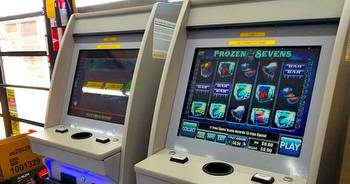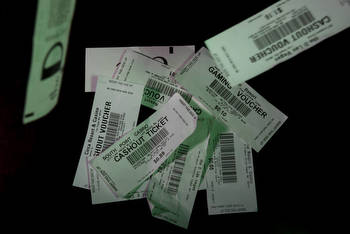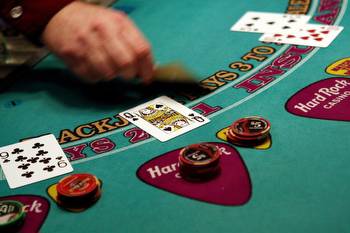Why did a gambler sue MGM casinos over pocket change? What to know about the payouts

A federal judge has dismissed a lawsuit claiming the parent company of Beau Rivage Resort and Casino in Biloxi cheated slots customers by using a redemption system that returns whole dollars only and not coins.
U.S. District Court Judge Sul Ozerden ruled that disputes about a gambling debt should be heard by the state Gaming Commission, not the courts, and the case wouldn’t meet a legal threshold for punitive damages.
In September 2022, Leane Scherer of New Orleans filed suit against MGM Resorts International, which operates casinos nationwide, over the system it uses to cash out slot players, calling it “a vehicle for converting players’ funds into casino funds.”
The suit centered around kiosks MGM uses to dispense cash. Scherer claimed when a slots player inserts their voucher into the kiosk, the kiosk rounds down to the nearest dollar and pays that amount in dollars. A player, she said, is then given the option to either donate the leftover change to a charitable foundation or get a second voucher for the coins.
The second voucher is known as a “TRU ticket” and must be taken to the cashier’s window, something Scherer argued made it “logistically impossible and logically improbable” that players would wait in line to retrieve their money in coins.
Scherer said in the suit she gambled at the Beau Rivage in June 2022 and got back only $18 from a voucher worth $18.19. She said she was unaware the TRU ticket could be redeemed for coins, and left the casino without obtaining her 19 cents. MGM said in filings it previously used a kiosk that dispensed dollars and coins, but changed it to dollars only during the COVID-19 pandemic.
Scherer said she filed her suit on behalf of herself and “hundreds of thousands of casino patrons who have been deprived, little by little, of millions of dollars since defendant’s adoption of its no-change policy.”
“The court finds that it lacks subject-matter jurisdiction over plaintiff’s claims because the gaming commission has exclusive jurisdiction over such disputes in Mississippi, and plaintiff has not exhausted the gaming commission’s administrative process,” Ozerdon’s opinion states.
Ozerdon dismissed the lawsuit without prejudice, a legal term that means a case has been dismissed but not finally decided. Scherer could bring a new suit on the same claim.
One of Scherer’s attorneys, Suzanne Montero, issued a statement to the news service Law360 last week: ”We have received the judge’s order and are considering our client’s options moving forward.”
A representative for MGM wasn’t immediately available for comment Monday.



































